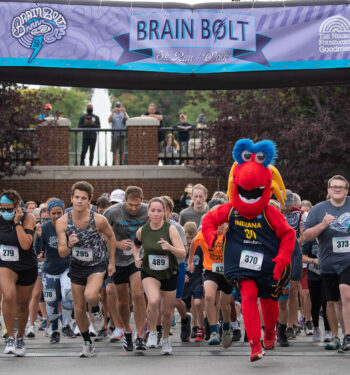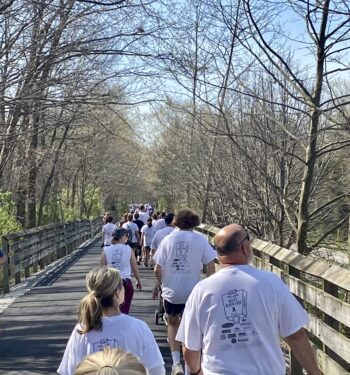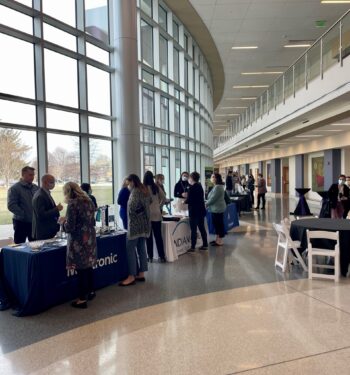March 16, 2018
In an address titled, “Towards Precision Medicine in Traumatic Brain Injury: State of Science and the Road Ahead,” David Okonkwo, MD, PhD, delivered an outlook on the history of TBI research and what lies ahead for the treatment of the devastating condition.
Dr. Okonkwo, professor and vice chair of Neurosurgery at the University of Pittsburgh School of Medicine, outlined the prevalence of TBI and the lack of adequate treatment for its victims during the 16th Annual Jack and Sabina Frew Lectureship held March 7 at Goodman Hall Auditorium.
“Traumatic brain injury is the leading cause of death under age 45 in the Western world,” he said. “Four million people in the United States seek medical care each year for a traumatic brain injury, and it is one of the key issues in military health for our soldiers. So traumatic brain injury is one of the most important public health and military health issues.”
Dr. Okonkwo highlighted the dedicated effort researchers have made to better treat the condition. But he said that despite 50 years of study, there is not a single FDA-approved treatment for traumatic brain injury.
“We have met that challenge by radically redesigning and transforming the way that we think about the disease, and the way forward in the future is to approach traumatic brain injury at the individual patient level and bring in tools and technologies that allow us to address the very specific problem of the patient in front of us and then apply the treatments in a precision medicine fashion to that patient.”
“The field is poised for some real breakthroughs,” he added.
In February, the first FDA-approved blood test for traumatic brain injury was trialed. It will be significantly better five years from now than it is today, Okonkwo said.
The new blood test, called the Banyan Brain Trauma Indicator, measures the levels of proteins released from the brain into the blood and can detect concussions in people, and more quickly identify those with possible brain injuries. It could eliminate the need for CT scans in many patients suspected of brain injuries.
Dr. Okonkwo also discussed his work as a principal investigator on the ongoing Transforming Research and Clinical Knowledge in TBI (TRACK-TBI) study. The NINDS-funded study is being conducted in 18 U.S. sites, including Indiana University, and is analyzing detailed clinical data on TBI along with CT and MRI imaging, biospecimens, and clinical outcomes. TRACK-TBI is targeting an enrollment goal of 3000 participants. As of March 12, enrollment stands at 2752 patients.
Dr. Okonkwo completed the MD/PhD program at Virginia Commonwealth University in 2000. He joined the University of Pittsburgh in 2006 following completion of a neurosurgical residency at the University of Virginia and a fellowship at New Zealand’s Auckland Public Hospital. He has published more than 190 papers and received numerous awards in his career.
The Jack and Sabina Annual Frew Lectureship was established in 2004 to further education in neurological critical care and trauma. The couple’s philanthropy was a part of the late Jack Frew’s gratitude for the medical care he received at IU Health Methodist Hospital.
Read more about the TRACK-TBI study here: https://tracktbi.ucsf.edu/


